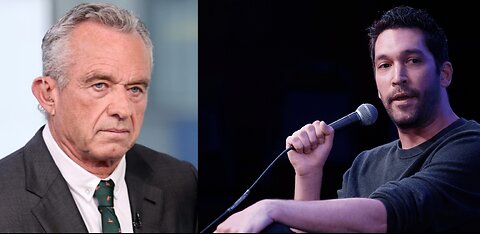Over the last couple of weeks, there has been considerable speculation about whether Robert F. Kennedy, Jr. will be seeking our party’s nomination for president—and about the Mises Caucus’ position on the matter.
RFK himself raised the possibility first during a Jan. 27 interview on a very failed cable news network and later on an episode of Dave Smith’s Part of the Problem (Ep. 1088).
Then, when discussing the matter on the Feb. 5 Timcast, Josh Smith intimated that the Mises Caucus leadership favored a plan to back an RFK Libertarian bid as a means to gain higher vote totals and thus better ballot access for the LP going forward.
This is simply false. The Mises Caucus has endorsed Michael Rectenwald for president and Clint Russell for vice president and we are working hard to see that they are nominated by our party at the Libertarian National Convention (May 23–26 in Washington, DC).
We firmly oppose any strategy that would “rent out” our party’s place on any state’s ballot to RFK, or indeed any candidate who has so many disqualifying deviations from the essential principles of libertarianism. (In fact, it was not us, but a former LNC chair and strong opponent of the Mises Caucus and the Ron Paul Revolution who said that Libertarians would be duty-bound to vote for the likes of Dick Cheney—or even Adolf Hitler—if it would secure minor party status for the LP.)
We in the LP bill ourselves as “The Party of Principle” for a reason: We are in this because we passionately favor individual liberty and believe that the State is the greatest threat to peace and freedom. Mises explained, in so many words, that the people get the State that they are willing to put up with; therefore our goal as Libertarians must be to convince as many of our fellow men as possible of the moral and practical superiority of liberty. We can’t do that if we muddy our message to chase votes.
History supports this analysis: Gary Johnson’s strong electoral showings harmed our brand and left our active membership stagnant, while Harry Browne’s anemic vote totals resulted in the greatest period of sustained growth in the LP’s history.
Another reason that the RFK gambit is a foolish idea is that it might actually work. If he did occupy the Libertarian ballot line and win five or even ten percent of the popular vote, millions of Americans will forever associate the LP with RFK’s policies. This would empty the LP of a large number of its most committed activists while attracting an influx of those with little or no regard for the Non-Aggression Principle.
For this election cycle and the foreseeable future, the only sound presidential election strategy for the LP must be to nominate candidates who will present an undiluted decentralist libertarian message in hopes of awakening the remnant who favor liberty over tyranny. Among those presently willing to take up that task, Michael Rectenwald and Clint Russell are clearly the most capable.
We’ve been sold on compromising principles in exchange for more votes and media coverage before—Gary Johnson, Bill Weld, Bob Barr, etc.—and it’s gotten us nowhere. A case could be made that the RFK scenario is more attractive than those failed gambits, but we still reject the premise wholesale. We know there are no shortcuts or cheat codes in our mission to unmake the American Empire—and that to have any hope of success we must be willing to put in the work as outlined in our Project Decentralized Revolution document.
If you’re ready to join us for the 2024 campaign and beyond, please visit TakeHumanAction.com and we’ll put you to work.

